Filter by
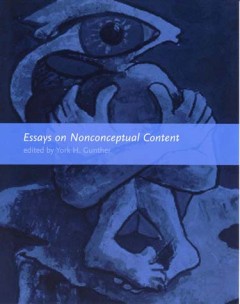
Essays on Nonconceptual Content
"A Bradford book."According to the widespread conceptualist view, all mental contents are governed by concepts an individual possesses. In recent years, however, an increasing number of philosophers have argued for the indispensability of nonconceptual content based on perceptual, emotional, and qualitative experiences; informational and computational states; memory; and practical knowledge. Wr…
- Edition
- -
- ISBN/ISSN
- 9780262274524
- Collation
- 1 online resource (339 pages)
- Series Title
- -
- Call Number
- -
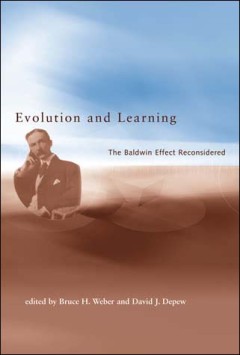
Evolution and Learning: The Baldwin Effect Reconsidered
Based on a conference held in Nov. 1999 at Bennington College."A Bradford book."The role of genetic inheritance dominates current evolutionary theory. At the end of the nineteenth century, however, several evolutionary theorists independently speculated that learned behaviors could also affect the direction and rate of evolutionary change. This notion was called the Baldwin effect, after the ps…
- Edition
- -
- ISBN/ISSN
- 9780262285865
- Collation
- 1 online resource (x, 341 pages) :illustrations.
- Series Title
- -
- Call Number
- -
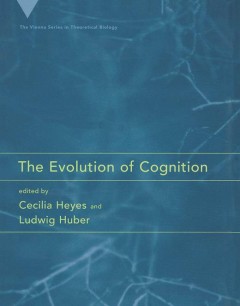
The Evolution of Cognition
"A Bradford book."In the last decade, "evolutionary psychology" has come to refer exclusively to research on human mentality and behavior, motivated by a nativist interpretation of how evolution operates. This book encompasses the behavior and mentality of nonhuman as well as human animals and a full range of evolutionary approaches. Rather than a collection by and for the like-minded, it is a …
- Edition
- -
- ISBN/ISSN
- 9780262275330
- Collation
- 1 online resource (viii, 386 pages) :illustrations.
- Series Title
- -
- Call Number
- -
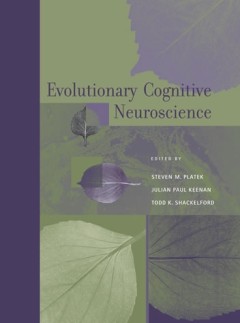
Evolutionary Cognitive Neuroscience
An essential reference for the new discipline of evolutionary cognitive neuroscience that defines the field's approach of applying evolutionary theory to guide brain-behavior investigations.OCLC-licensed vendor bibliographic record.
- Edition
- -
- ISBN/ISSN
- 9780262281669
- Collation
- 1 online resource (xix, 616 pages) :illustrations.
- Series Title
- -
- Call Number
- -
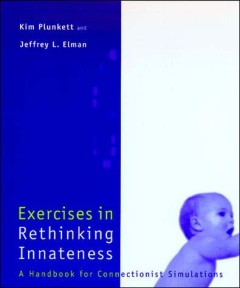
Exercises in rethinking innateness: A handbook for connectionist simulations
OCLC-licensed vendor bibliographic record.
- Edition
- -
- ISBN/ISSN
- 9780262287081
- Collation
- 1 online resource.
- Series Title
- -
- Call Number
- -
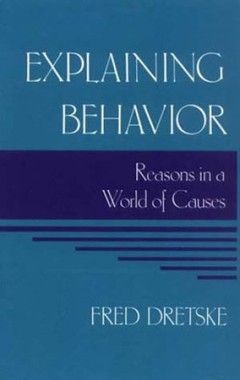
Explaining behavior: reasons in a world of causes
"A Bradford book."OCLC-licensed vendor bibliographic record.
- Edition
- -
- ISBN/ISSN
- 9780262271967
- Collation
- 1 online resource (xi, 165 pages)
- Series Title
- -
- Call Number
- -
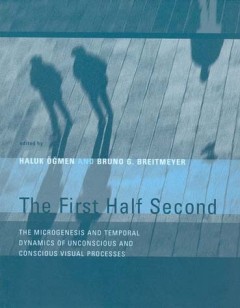
The First Half Second: The Microgenesis and Temporal Dynamics of Unconscious …
Recent advances in the study of visual cognition and consciousness have dealt primarily with steady-state properties of visual processing, with little attention to its dynamic aspects. The First Half Second brings together for the first time the latest research on the dynamics of conscious and unconscious processing of visual information, examining the time-course of visual processes from the m…
- Edition
- -
- ISBN/ISSN
- 9780262316293
- Collation
- 1 online resource (vii, 410 pages) :illustrations
- Series Title
- -
- Call Number
- -
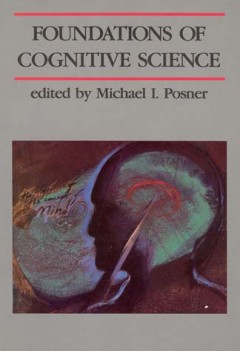
Foundations of cognitive science
"A Bradford book."What is cognitive science? Foundations of Cognitive Science answers this question in a way that gives a feeling for the excitement, ferment, and accomplishments of this new field. It is the first broad treatment of cognitive science at an advanced level.Complete and authoritative, Foundations of Cognitive Science covers the major architectures; provides background in philosoph…
- Edition
- -
- ISBN/ISSN
- 9780262281805
- Collation
- 1 online resource (xiv, 862 pages) :illustrations
- Series Title
- -
- Call Number
- -
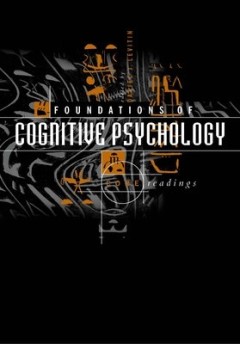
Foundations of Cognitive Psychology: Core Readings
"A Bradford book."Scientists from many disciplines, including physics, chemistry, biology, and neuroscience, contribute to the study of cognition. Cognitive psychology, the science of the human mind and of how people process information, is at the core of empirical investigations into the nature of mind and thought. This anthology is based on the assumption that cognitive psychology is at heart…
- Edition
- -
- ISBN/ISSN
- 9780262278263
- Collation
- 1 online resource (xvi, 862 pages) :illustrations.
- Series Title
- -
- Call Number
- -
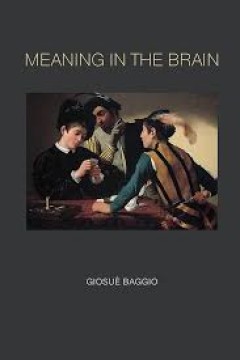
Meaning in the brain
An argument that the meaning of written or auditory linguistic signals is not derived from the input but results from the brain's internal construction process. When we read a text or listen to speech, meaning seems to be given to us instantaneously, as if it were part of the input. In Meaning in the Brain, Giosue Baggio explains that this is an illusion created by the tremendous speed at which…
- Edition
- -
- ISBN/ISSN
- 9780262347198
- Collation
- 1 online resource (xxiv, 348 pages) :illustrations (chiefly color)
- Series Title
- -
- Call Number
- -
 Computer Science, Information & General Works
Computer Science, Information & General Works  Philosophy & Psychology
Philosophy & Psychology  Religion
Religion  Social Sciences
Social Sciences  Language
Language  Pure Science
Pure Science  Applied Sciences
Applied Sciences  Art & Recreation
Art & Recreation  Literature
Literature  History & Geography
History & Geography